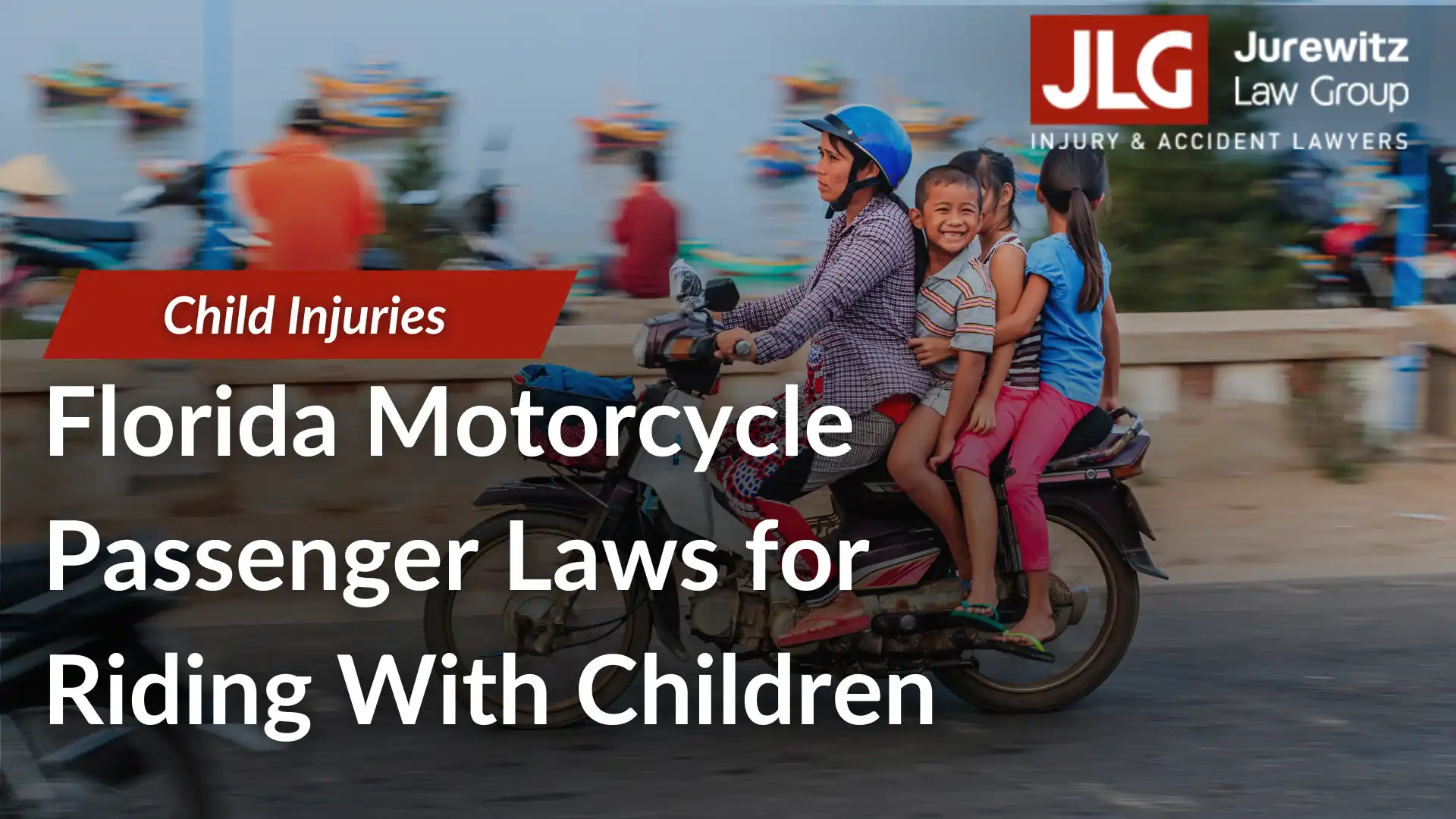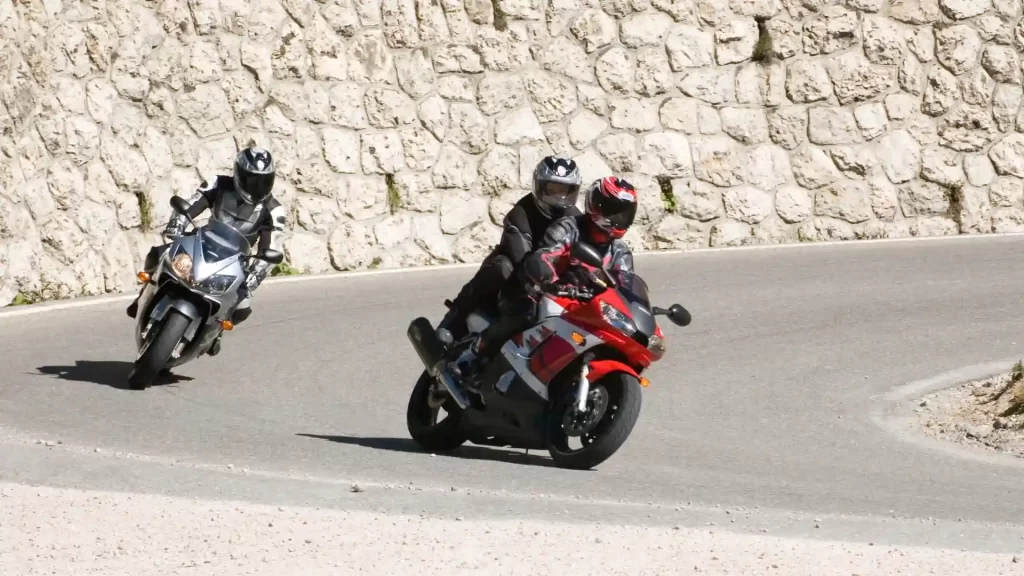
Riding a motorcycle can be an exhilarating experience, and many riders enjoy sharing this passion with their loved ones, including children. However, it’s crucial to understand and adhere to Florida’s motorcycle passenger laws, especially when it comes to riding with young children. These laws are designed to ensure the safety of all passengers and to minimize the risk of accidents and injuries. At what age can a child ride on the back of a motorcycle in Florida?
In Florida, there are specific requirements and restrictions that apply to motorcycle passengers, including age limits, helmet use, and seating positions. As a responsible rider, it’s essential to familiarize yourself with these regulations and to make informed decisions when carrying children as passengers on your motorcycle. In this blog post, we’ll provide a comprehensive overview of Florida’s motorcycle passenger laws, with a particular focus on the rules and best practices for riding with children.
What the Law Says About Child Motorcycle Passengers in Florida
Some may find it surprising to learn that Florida places few restrictions on children riding as motorcycle passengers. Under Florida law, someone may ride as a motorcycle passenger if the motorcycle’s design supports passengers.
A passenger may sit on the permanent regular seat of a motorcycle if it supports two people. If it doesn’t, a passenger must sit in a sidecar.
As some Florida motor vehicle safety companies and organizations point out, Florida law doesn’t set a minimum age for a child riding as a motorcycle passenger. A few other states do set such requirements.
Is There a Specific Legal Age for Motorcycle Passengers in Florida?
Currently, no. Florida law doesn’t require motorcycle passengers to be a certain age. That doesn’t mean riding with very young children is wise. A small child could be quite vulnerable on a motorcycle. In addition, they may be too young to understand the potential harm they can cause.
A young child might interfere with the operation of a motorcycle in various ways, such as pulling at your hair, trying to cover your eyes, or simply trying to hold your hand. Ensure a child is mature enough to be a responsible motorcycle passenger before taking one along for a ride.
Additionally, before allowing a child to ride with you on a motorcycle, you should:
- Confirm a child is of sufficient height to reach the footrests. Florida law requires motorcycles to have footrests for passengers. This requirement doesn’t apply when a passenger rides in a sidecar or enclosed cab.
- Practice all motions a child may need to perform when riding with you before going out on the road. For example, have a child practice holding onto you on a motorcycle. Assess whether you think they’ll be able to comfortably do so throughout a ride.
- Pick your routes wisely. Start slow when riding a motorcycle with a child, choosing routes that will likely involve minimal potential hazards.
Gear and Helmet Laws for Motorcycle Passengers in Florida
The Florida law regarding gear motorcycle operators and passengers must use also applies to child passengers. Requirements to be aware of include the following:
- Any passenger of a motorcycle must wear headgear that complies with Federal Motorcycle Vehicle Safety Standard 218.
- A person under 16 years of age may not ride on a moped without headgear that complies with Federal Motorcycle Vehicle Safety Standard 218.
The law also requires motorcycle operators to wear approved eye-protective devices (like goggles). Technically, passengers don’t have to wear such gear. However, it may be wise for a child to wear such eye protection.
Violating Safety Regulations for Riding With Passengers in Florida: Potential Consequences
It is important to follow motorcycle safety gear for children Florida regulations. The penalties you might face for violating motorcycle passenger laws in Florida can depend on the nature of the violation. For example, failure to abide by Florida’s motorcycle helmet law is a nonmoving violation. This type of noncriminal traffic infraction may result in a fine of $30.00.
Violating a law regarding whether a child can even be a passenger on a motorcycle (such as riding with a child on a motorcycle designed for one rider) qualifies as a moving violation. The penalty for this type of moving violation can be up to $60. In addition, sanctions for minors may apply if a child was technically the one to violate the law.
Just remember that violating these regulations doesn’t merely result in legal penalties. It can also be dangerous. Factors such as whether you were breaking a law at the time of a crash can also affect whether you may receive compensation after a wreck someone else causes.
Riding a Motorcycle with Passengers in Florida: General Safety Tips
 Certain tips are worth keeping in mind when operating a motorcycle with passengers of any age. They include the following:
Certain tips are worth keeping in mind when operating a motorcycle with passengers of any age. They include the following:
- Make sure a passenger understands the effects of their movements – Handling a motorcycle is already a somewhat complex task. That task can become more complex with the addition of a passenger. For example, if a passenger were to lean their body in the wrong direction while you made a turn, you might lose control of the vehicle. Ensure both you and your passengers understand the effects of their actions before riding with one.
- Don’t ride with an intoxicated passenger – You know you can never operate a motorcycle under the influence of drugs or alcohol. However, riding with an intoxicated passenger may also be dangerous. Unless you need to ride with an intoxicated passenger to avoid another potentially dangerous situation, don’t do so. Someone under the influence of drugs or alcohol may be less likely to keep safety precautions in mind during a ride.
- Adjust your suspension if necessary – Practicing riding with passengers in safe areas is smart, even when passengers aren’t children. That’s because the added weight of a passenger may affect a motorcycle’s balance. Adjust your suspension accordingly if this happens. In addition, because a passenger adds weight, you may need more time to stop your vehicle. Maintain a greater distance between your vehicle and others when a passenger is onboard.
Contact a Florida Motorcycle Accident Lawyer
Unsure at what age can a child ride on the back of a motorcycle in Florida? Has your child sustained injuries in a motorcycle accident? If so, they may be eligible for compensation. Showing you were obeying all applicable safety laws can play a major role in your case.
Learn more about your options by discussing your case with a Tampa motorcycle accident lawyer at Jurewitz Law Group Injury & Accident Lawyers. We’re prepared to offer the representation you deserve. Get started today by contacting us online or calling our lawyers at (619) 233-5020 for a free case review.


